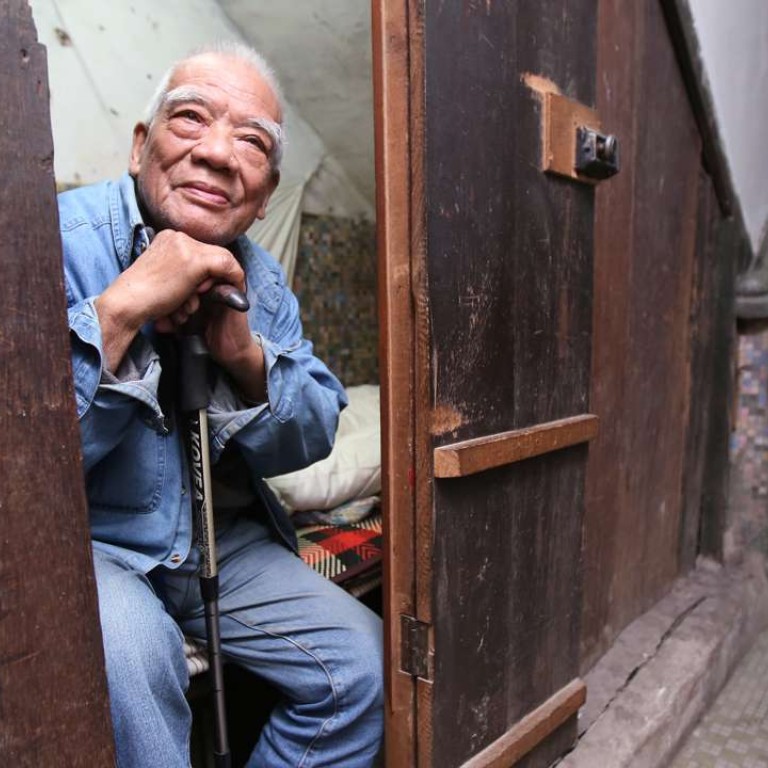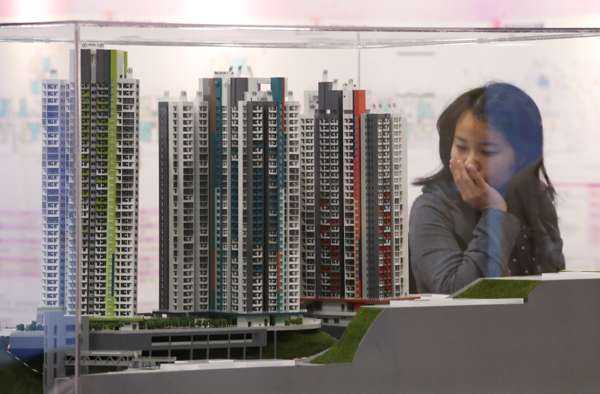
Four predictions for 2037, and where Carrie Lam must take Hong Kong toward
Ageing population, strengthening links with the Pearl River Delta, adopting technology, inequality
For the past two weeks I have been bombarded by commentary on my “mea culpa” audit of the predictions made in the 1997 Hong Kong Advantage book.
Among the many cogent comments, those driven home most forcefully were along the lines of: “It’s easy for you to go back 20 years and review what you got right or wrong, but your article would be much more interesting and valuable if it looked forward two decades and tried to describe where we will be in 2037.”
Fair point, I thought, even though I fear such predictions are likely to be a fool’s errand. Looking back over the past two decades, who would have predicted the Asian financial crisis, the Severe Acute Respiratory Syndrome or the 2008 crash in global financial markets? Who knows what “unknown unknowns” might occur in the coming 20 years to put a landmine under the most carefully considered predictions?
Inequality, and our homes crisis, will need radically and decisively to be tackled and resolved if Hong Kong’s social fabric is not to be torn apart
But perhaps this week of all weeks is exactly when such foolish endeavours can be justified. With a new chief executive now preparing to step into office from July 1, potentially with a 10-year term ahead of her, some serious crystal ball gazing seems in order.
Some defining challenges can be foreseen with confidence.
First, the ageing of the Hong Kong population will grind relentlessly forward, forcing policymakers to pay increasingly careful attention to health care, elderly care, and how these mounting costs are resourced without overburdening the shrinking working-age population.
Second, the growth of China’s already massive and increasingly sophisticated consumer economy will exert an irresistible centripetal force on the Hong Kong economy. If Hong Kong is not destined to become “just another Chinese city,” then this increasingly intense interlinkage, in particular with the Pearl River Delta, will need to be exquisitely managed – whatever the protests of Hong Kong’s Sino-phobic minority who are naively fighting for independence and pressing officials to keep mainland decision-making at the furthest possible arm’s length.
Third, new technologies will alter our lives, and the skills we need to thrive, in ways we can barely imagine – and more here in Hong Kong than most cities worldwide, given the passion with which China’s consumers – and entrepreneurial innovators – are chasing such change.
Inequality, and our homes crisis, will need to be tackled and resolved radically and decisively if Hong Kong’s social fabric is not to be torn apart. I say homes crisis rather than housing crisis because the present developers’ offers of ever-tinier sleeping spaces – condoned by our administration – can only deepen the crisis.
Over the coming two decades, if Hong Kong is to survive as the leading city it is today, the government must ensure that the significant majority of Hong Kong people have a home in which they can be happy and proud to raise families.

Finally, the distinctiveness that defines Hong Kong’s “high level of autonomy” – from the rule of law and freedom of speech to practices and institutions that are familiar and comfortable to international businesses and workers wherever they come from – must at all costs be protected and kept strong.
This “internationalness” (forgive me, a horrible word) is pivotal for Hong Kong’s successful future – and is likely to be valued as much by mainland companies listing here or setting up international headquarters and fundraising operations here, as it is by companies from Germany, France, Singapore or the US.
It involves widespread fluency in English and Mandarin. It should include the Hong Kong University being China’s strongest English-language university. It involves cross-cultural tolerance that has been a hallmark of Hong Kong for most of my working life here.
Whether we meet these challenges, and what shape Hong Kong will be in by 2037, is going to depend critically on what Carrie Lam and her administration achieve in the coming decade.
First, and perhaps most important of all, she must, at the earliest opportunity, sensitively identify an issue on which she can be seen conspicuously to be standing up for the interests of Hong Kong people. Her political credibility with the Hong Kong community critically depends on it. The failure of her predecessors to do this cost them dear, and played a large part in fuelling fears that our leaders were insensitive to challenges felt severely among ordinary people. It has led to hopeless Legco gridlock, hobbled important political decision-making, and made it impossible for the government effectively to address urgent social needs.
At the same time – and this is not contradictory – she must press forcefully forward with more effective interconnection with the Pearl River Delta. These neighbouring cities need us as much as we need them, and our futures will be greatly enriched if we can develop the potential of the region together.
There must be well articulated emphasis on the importance of “a high level of autonomy,” with intensive work with senior mainland officials both here in Hong Kong and up in Beijing to demonstrate why this is in all of our interests.
There can be no repeats of Chinese security personnel spiriting Hong Kong-based people away to the mainland to help with inquiries of whatever kind.
There should be intensive advocacy on Hong Kong’s “internationalness”. Lam and her ministerial team should spend more time around the world emphasising the distinct role Hong Kong is playing intermediating between China and other parts of the global economy.
That probably means strengthening still further the work of our Economic and Trade Offices, of InvestHK, and of the Trade Development Council. We should be supporting major global conferences on issues like the critical importance of international free trade and investment, on innovation and on international arts and culture.
Last, and not least, her effectiveness will depend on the strength of the ministerial team she builds around her.
She has in recent months been criticised as a poor delegator, and she and her ministers must prove those critics wrong.
Predicting where we will be in 20 years may be difficult – but for sure, the performance of Carrie Lam Cheng Yuet-ngor and her team from July 1 this year will be pivotal.
David Dodwell researches and writes about global, regional and Hong Kong challenges from a Hong Kong point of view

